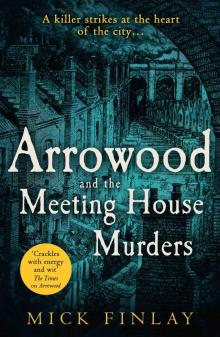The Adventures of Harry Revel


Author: Arthur Quiller-Couch
Category: Other2
Published: 2007
Series:
View: 220
Read OnlineCHAPTER I. I FIND MYSELF A FOUNDLING. My earliest recollections are of a square courtyard surrounded by high walls and paved with blue and white pebbles in geometrical patterns—circles, parallelograms, and lozenges. Two of these walls were blank, and had been coped with broken bottles; a third, similarly coped, had heavy folding doors of timber, leaden-grey in colour and studded with black bolt-heads. Beside them stood a leaden-grey sentry-box, and in this sat a red-faced man with a wooden leg and a pigtail, whose business was to attend to the wicket and keep an eye on us small boys as we played. He owned two books which he read constantly: one was Foxe\'s Martyrs, and the other (which had no title on the binding) I opened one day and found to be The Devil on Two Sticks. The arch over these gates bore two gilt legends. That facing the roadway ran: "Train up a Child in the Way he should Go," which prepared the visitor to read on the inner side: "When he is Old he will not Depart from it." But we twenty-five small foundlings, who seldom evaded the wicket, and so passed our days with the second half of the quotation, found in it a particular and dreadful meaning. The fourth and last wall was the front of the hospital, a two-storeyed building of grey limestone, with a clock and a small cupola of copper, weather-greened, and a steeply pitched roof of slate pierced with dormer windows, behind one of which (because of a tendency to walk in my sleep) I slept in the charge of Miss Plinlimmon, the matron. Below the eaves ran a line of eight tall windows, the three on the extreme right belonging to the chapel; and below these again a low-browed colonnade, in the shelter of which we played on rainy days, but never in fine weather—though its smooth limestone slabs made an excellent pitch for marbles, whereas on the pebbles in the yard expertness could only be attained by heart-breaking practice. Yet we preferred them. If it did nothing else, the Genevan Hospital, by Plymouth Dock, taught us to suit ourselves to the world as we found it. I do not remember that we were unhappy or nursed any sense of injury, except over the porridge for breakfast. The Rev. Mr. Scougall, our pastor, had founded the hospital some twenty years before with the money subscribed by certain Calvinistic ladies among whom he ministered, and under the patronage of a Port Admiral of like belief, then occupying Admiralty House. His purpose (to which we had not the smallest objection) was to rescue us small jetsam and save us from many dreadful Christian heresies, more especially those of Rome. But he came from the north of Britain and argued (I suppose) that what porridge had done for him in childhood it might well do for us— a conclusion against which our poor little southern stomachs rebelled. It oppressed me worse than any, for since the discovery of my sleep-walking habit my supper (of plain bread and water) had been docked, so that I came ravenous to breakfast and yet could not eat. Nevertheless, I do not think we were unhappy....
 Arrowood and the Meeting House Murders
Arrowood and the Meeting House Murders The Changeling of Fenlen Forest
The Changeling of Fenlen Forest How to Analyze People
How to Analyze People Buddhist Warfare
Buddhist Warfare State of Grace: A Moonflower Cove Romance
State of Grace: A Moonflower Cove Romance The Mistress of Illusions
The Mistress of Illusions 365 Days
365 Days Royal Disaster #6
Royal Disaster #6